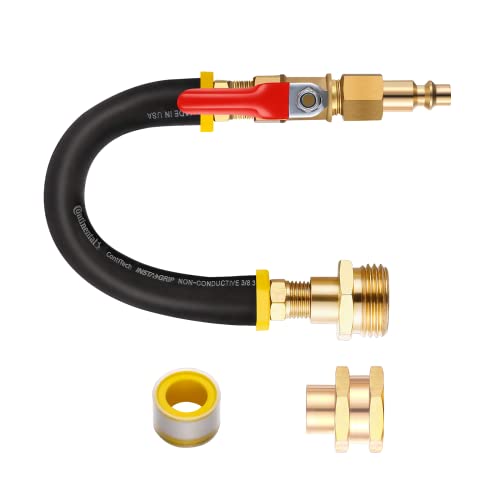
Typically, a water heater lasts for around 15 years. Still, this depends on its power source, how well it is maintained, and its materials and manufacturing quality.
What Are Signs My Water Heater Needs Replacement?
You can easily notice when your RV water heater needs replacement. Some of the signs include:
Strange Noises
A faulty water heater makes strange noises. If you hear banging or rumbling noises, it’s time to buy another heater!
The noises are caused by sediment build-up, which signals infrequent maintenance. The mineral build-up hardens at the bottom, creating a thick crust. Ultimately, your unit might creak and bang.
Tinted Water
Tinted water, whether it’s yellow or red, usually signifies rust! So, find out where it’s coming from by turning on a cold faucet. If it runs clear and your water gets discolored, your unit is rusty. Unfortunately, you only have to replace your unit. Plain and simple!
Lower Temperatures
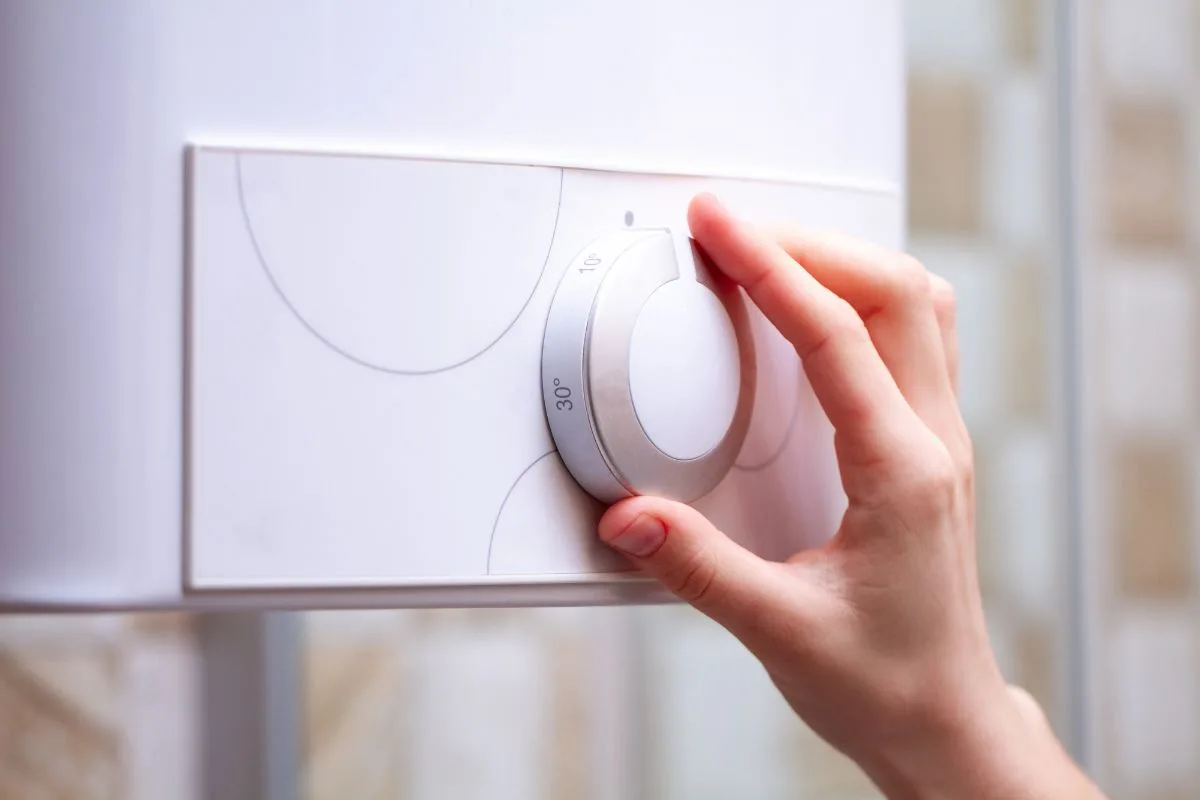
A faulty water heater struggles to provide hot water. The water might not be as hot as it used to be, or the heat amount is less. Either way, you only have to replace your unit before it stops functioning completely.
Pooling Water
Water pooling at the base of your unit signifies the need for fitting or a valve that needs replacing or tightening. If it comes directly from the tank, it mainly signifies corrosion and cracks — a death sentence for your water heater.
What Affects My Water Heater’s Lifespan?
Factors that affect your water heater’s lifespan, include:
Improper Installation
You need to install your water heater properly. This doesn’t only involve correct wiring but placing it uprightly in a well-ventilated space.
A well-ventilated space prevents carbon-monoxide concentration hence minimizing your health risks. Still, poor ventilation might dramatically shorten your unit’s lifespan.
Once more, proper installation minimizes the risk of flood damages. The interior of your unit is rust-resistant, but the exterior isn’t. So, avoid placing your unit on the floor where it risks being exposed to floods.
Water might damage the coating, lines, and pipes. Eventually, your water heater might be rusted and not safe to use.
Be sure to place your unit in an out-of-the-way but accessible place. “Accessible” means it shouldn’t get obstructed by anything. This helps with maintenance and fulfills the requirement for health-hazard and fire safety.
Usage
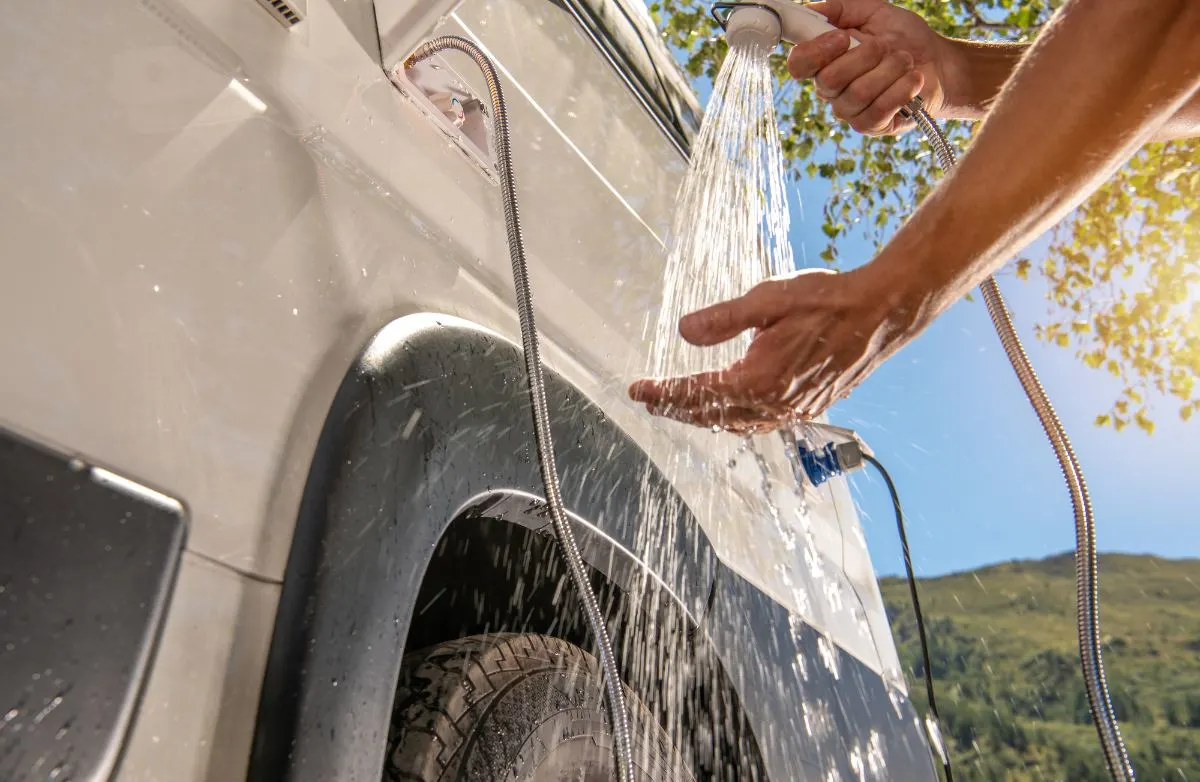
A water heater isn’t a flawless appliance that can effectively serve you. It eventually wears out! Therefore, constantly running your unit so much puts it to the limits. Ultimately, your unit becomes more susceptible to wear. The corrosive effects of hot water occur, too.
Quality
Please purchase a high-quality water heater. I recommend you spend more on quality because a cheaper unit might need to be replaced sooner than an expensive one.
A more expensive water heater pays itself with a longer lifespan and lowers energy bills if you’re fortunate.
One indicator of a high-quality unit is an extended warranty. A more extended warranty signifies the manufacturer trusts the units can efficiently function for a long. No manufacturer can put a 10-year warranty on a unit it thinks might only last seven.
Likewise, purchase a unit with thick insulation. It should have durable heating features and a glass-lined casing. Other elements like self-cleaning function might help reduce sediment or mineral-build up.
Infrequent Maintenance
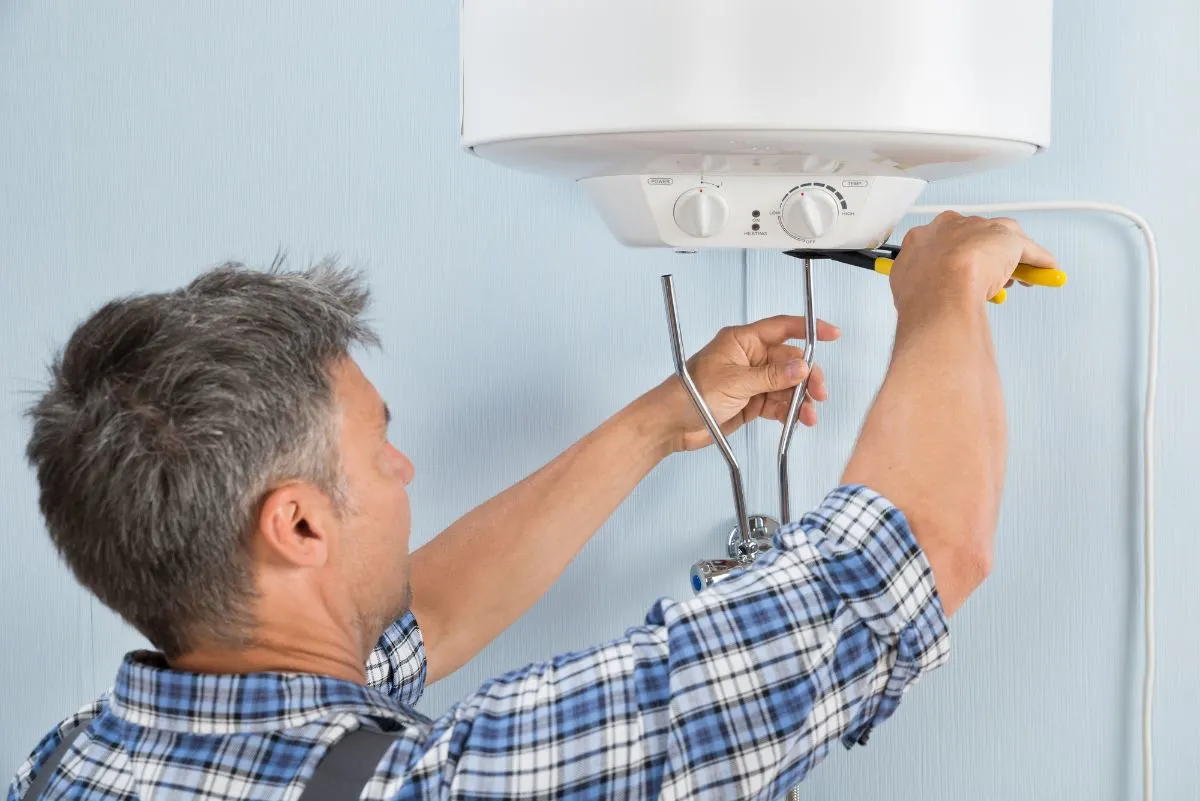
You need to frequently maintain your water heater, mainly if you often use hard water. Hard inlet water with high mineral content significantly reduces your unit’s lifespan. It decreases the unit’s efficiency, too.
Mineral content is also present in softer water. Hence, perform frequent maintenance on your water heater by flushing it to minimize any potential mineral build-up.
Can I leave My RV Water Heater On?
It’s safe to leave your RV unit on. But, don’t power it when the bypass valves are still logged. Besides, make sure there is water in your RV water heater. When the unit heats without water, it might become damaged quickly!
How Can I Start My RV Water Heater?
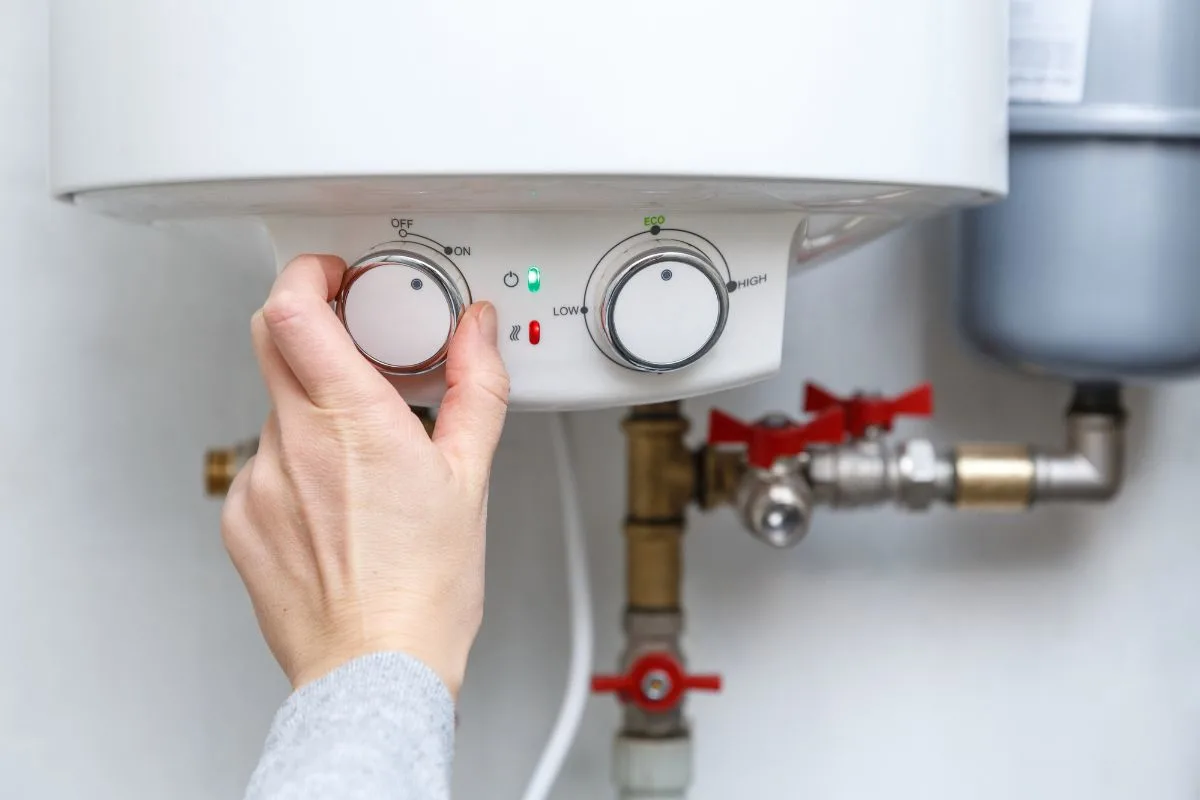
Turn your RV water heater on by locating its switch and toggle it to “on”. When your camper water heater is in gas mode, the igniter might have to click on the pilot light. At times you might have to light the pilot light manually.
Always check out your RV manufacturer’s manual for complete information. Again, you don’t have to be a technician, but there is much to be said about the inner system of your RV.
Your RV water heater is an essential appliance that makes your camping experience more memorable and comfortable. So, knowing these bits of information might make you more knowledgeable and save you some hassle when you’re out on the road.
How Can I Care For My RV Water Heater
The leading factor for extending the lifespan of an RV water heater is proper care and maintenance. Descaling and flushing your tank, changing the anode rod, and other annual tasks can help keep your heater working for well over a decade.
Let’s take a quick look at other tips that help you preserve your RV water heater:
Keep Your RV Water Heater Tank Full
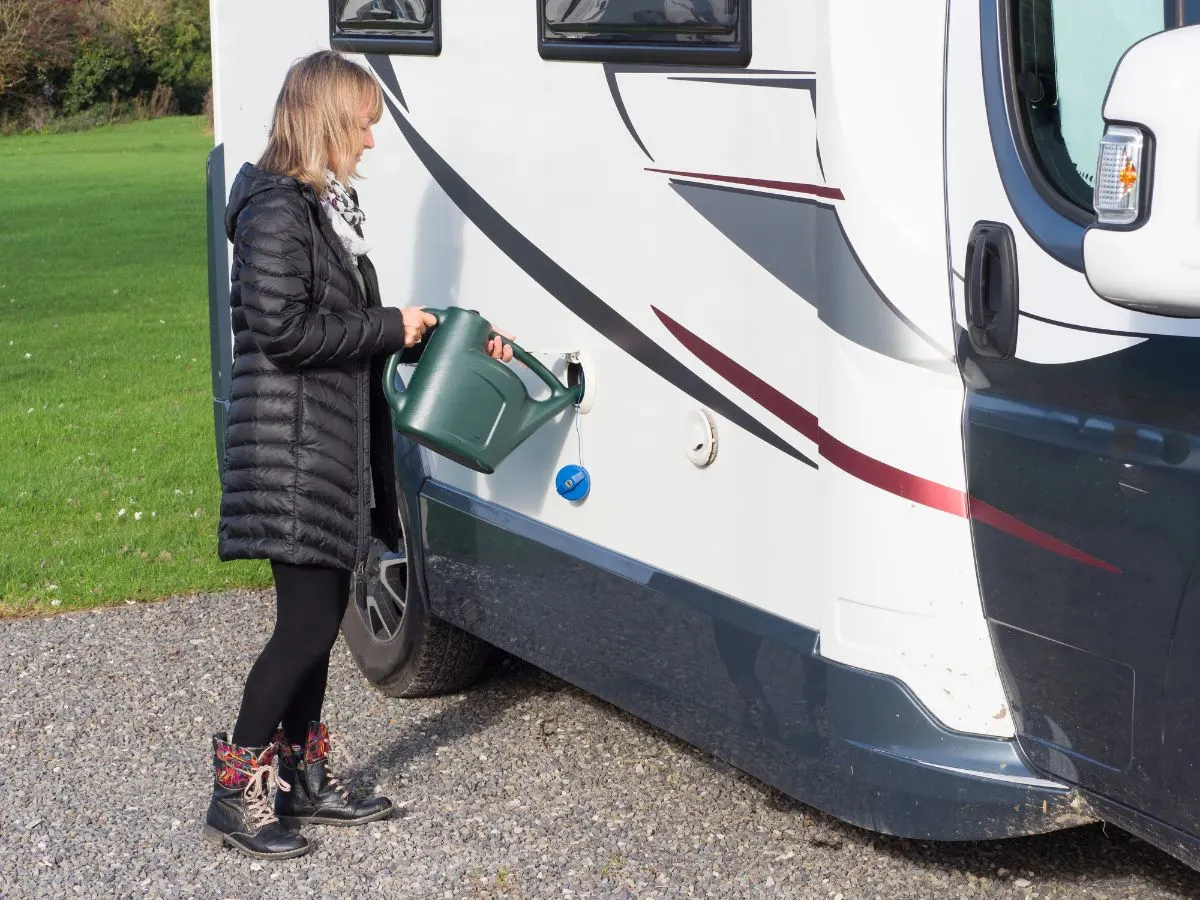
The leading cause of RV water heater maintenance issues is human errors. Most people easily forget to refill their RV water heater tanks when they run dry. So, ensure enough water is in the tank before turning it on.
Replace or Install the Anode Rod Annually
Most steel RV water heater tanks have an anode rod. This is a temporary steel core wire with aluminum, magnesium, or zinc. The anode rod is designed to help prevent the erosion of the steel water tank.
Therefore, be sure to get one and help elongate your RV water heater lifespan. If you have one, ensure you replace it annually to help increase the longevity of your tank.
Drain or Descale Your RV Water Tank Annually
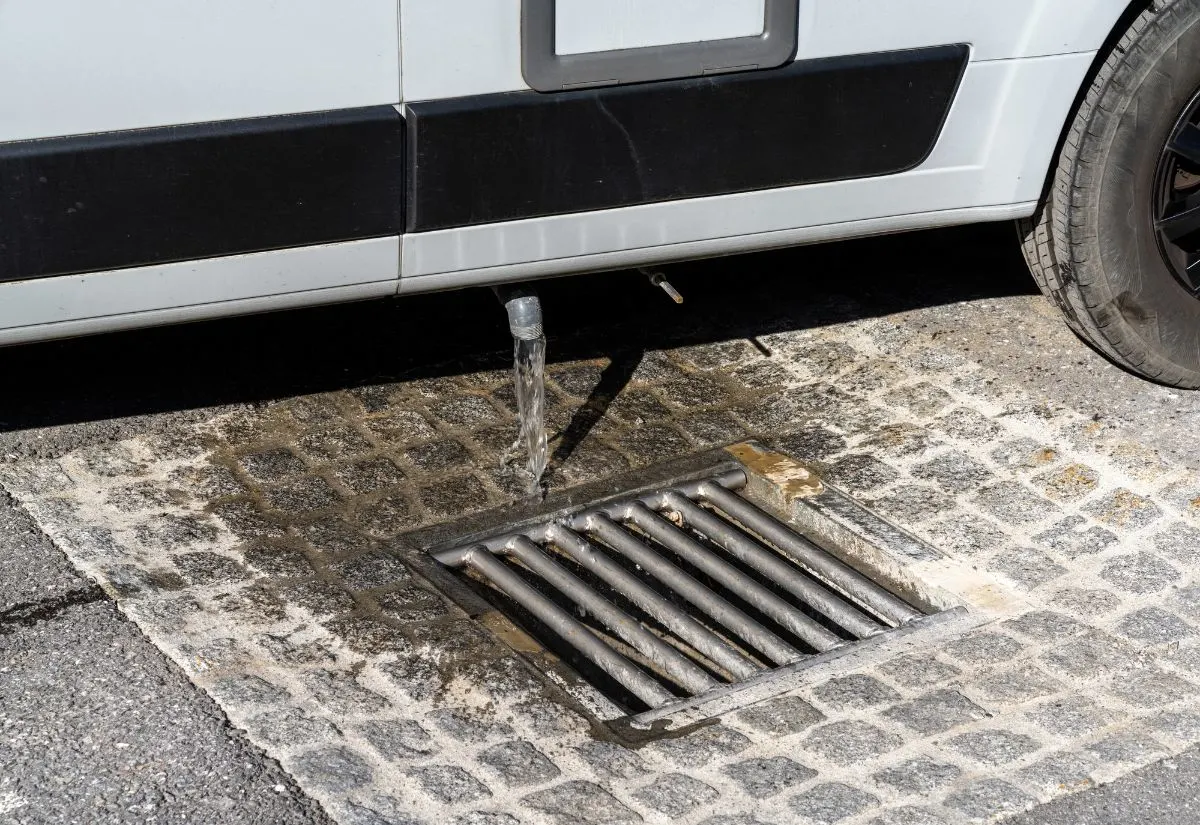
You have to drain your heater whenever the RV isn’t in use. This increases your water heater tank lifespan. Your unit might gradually build up debris and icky “crud” on the bottom.
Again, it might overheat and burn out when your heater tank gets enough contamination to touch the heating system!
So, descale and drain your water tank at least once annually. This removes any crud or debris that builds up over the years.
Use a water tank heater rinser to descale and drain your tank effectively. A water heater tank rinser specifically helps spray water into the back of an empty tank to remove the debris and crud that might damage your tank.
What Do I Need to Winterize My RV Lines?
Arm yourself with the following supplies to effectively winterize your RV lines:
- Lubricant
- About three gallons of non-toxic antifreeze
- Tools for removing drain plugs
- Manufacturer’s manual
- A blowout plugs for your city water inlet
- A 35 to 55 psi air compressor
- Water-heater bypass kits
- Tubing for the water pump inlet
- Tank cleaning solutions
- Laundry detergents
- A bag of ice cubes
Please read the manual keenly for all warnings and instructions about adding antifreeze, draining water lines, and other winterizing information. Different RVs have different specific methods to get winterized.
Simply drain your holding tanks and plumbing into a sewer system. The hot water tank is clean, so drain it where it is safe. And don’t make mud under your RV lines it might turn messy and slippery!
How Can I Fix My RV Water Pump Issue?
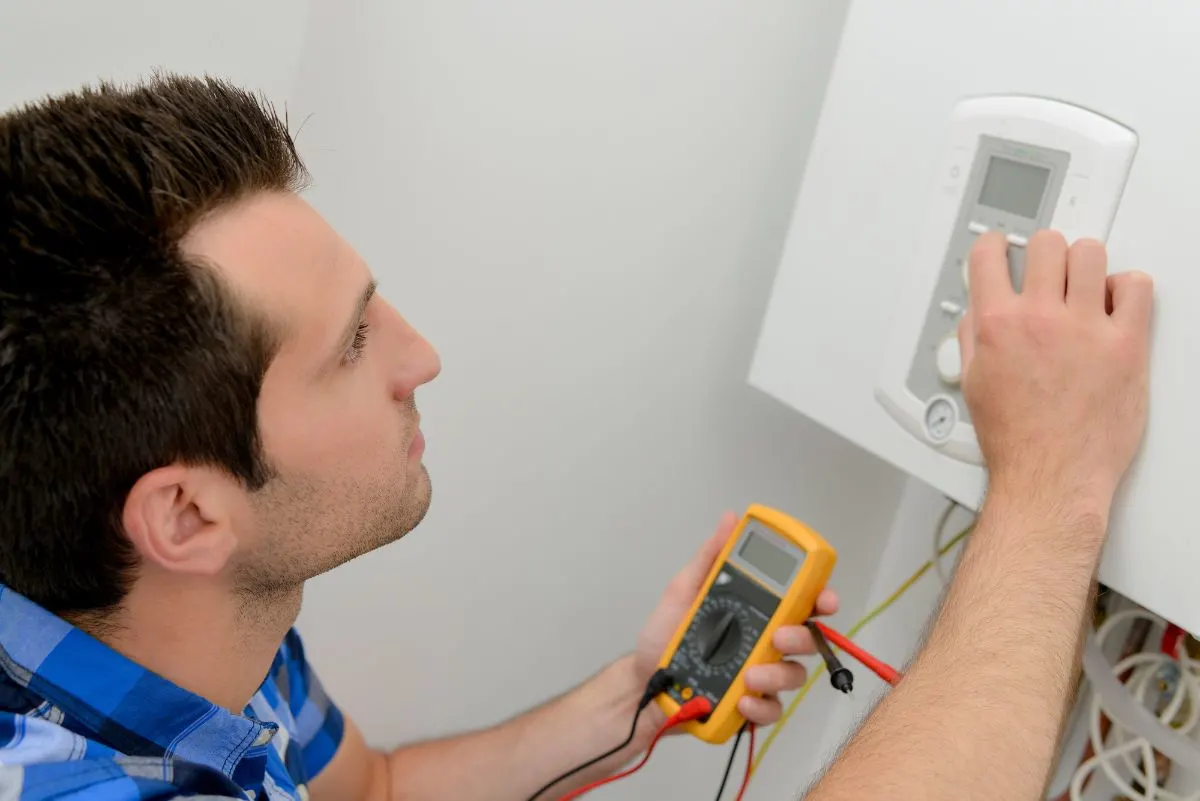
Fixing your RV water pump issue includes retightening loose mechanical components, cleaning clogged strainers, or replacing faulty parts. Still, confirm if your pump voltage is pumping the right amount of energy.
For example, if your RV pump isn’t stopping and starting promptly, this might be an issue to do with the amount of voltage received.
Closing Remarks
A high-quality RV water heater might last for about 15 years. It might even last longer with proper maintenance. Always be mindful of your RV water heater usage by performing regular maintenance.

